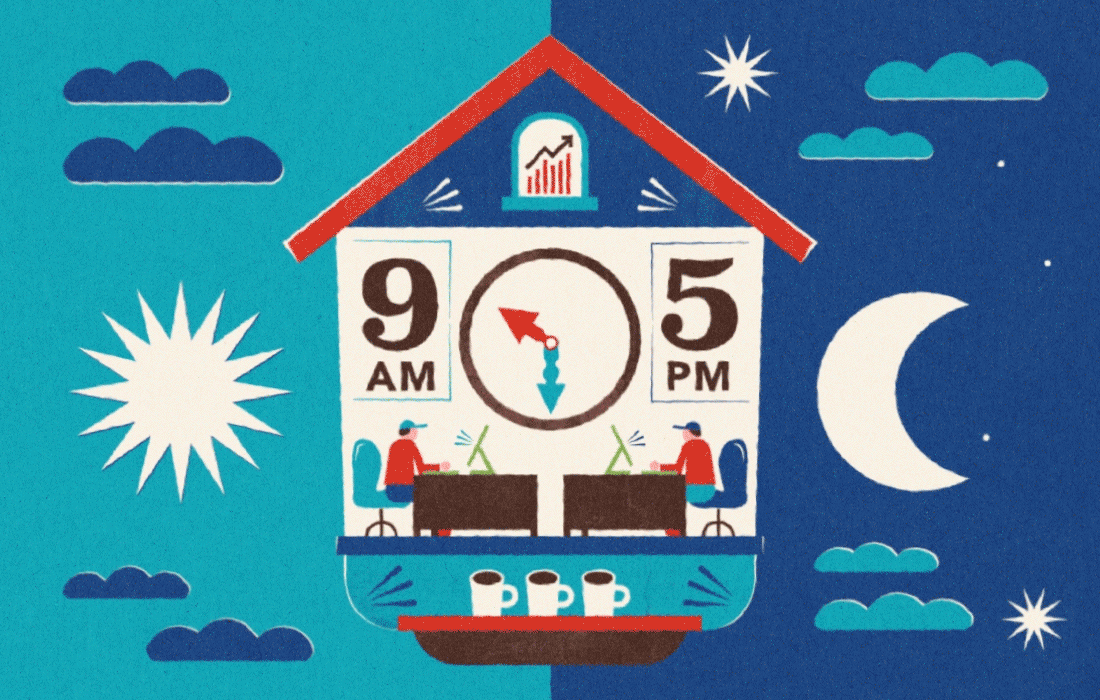
As a self-proclaimed night owl, I often feel the most creative and can concentrate my best during the evening. But this is not necessarily when I am expected to be productive.
Our society and culture are built to benefit early risers and don’t cater to those whose sleep schedule doesn’t follow the typical 9-to-5 workday that everything is structured around.
Generally, a person who starts their day early in the morning is going to be considered more productive than someone who ends their day past midnight. If you stay up late, your work ethic is often questioned and the assumption is that you are bad at managing your time.
But this way of thinking isn’t necessarily correct.
The field of chronobiology — the study of natural physiological rhythms, such as sleep — seeks to understand our body’s internal clock, or chronotype, which all comes down to genetics.
Our chronotype does more than just determine when we get tired. It also defines our peak productivity time. For me, I know that’s usually around 10 p.m.
This wouldn’t normally be a problem. However, when your natural sleeping pattern is at odds with the rest of the world, it’s not ideal.
For example, when motivation strikes in the middle of the night and I am finally able to study for an exam or finish my homework, I am put at a disadvantage. I may have successfully accomplished what I set out to do, but when I have an early morning class, my sleep is jeopardized in the process — I can’t stay up late and wake up early.
If productivity doesn’t have a time constraint, then why must our work culture favour such rigid schedules?
If there’s one thing that the coronavirus pandemic has shown us, it’s that a more flexible work arrangement is much more sustainable.
According to one survey, the majority of Canadians want to continue working from home, with 90 per cent claiming that they are just as productive, if not more, compared to their time in the office.
Personally, this comes as no surprise.
The majority of my university experience has taken place online, offering me the opportunity to not just learn where I please, but also when. With online school, I didn’t have to wake up early and start my one-hour commute to campus just to attend class whilst half-asleep. I could simply stay home and press play on my pre-recorded lectures whenever I pleased.
Overall, I accomplished more because I was no longer forced to be productive at a time that didn’t suit me.
For many students, there simply isn’t enough time in the day to do it all. The demands of school, work and extracurricular activities can be overwhelming. But for others, myself included, the choice to stay up late is a conscious effort. However, it doesn’t come without a cost.
Research shows that night owls are 10 per cent more likely to die early compared to their morning counterparts. The most plausible explanation is that night owls are forced to live in a world scheduled for those who rise with the sun. Your body’s natural inclination and what society demands of you clash when you are expected to do things like eat or sleep, and you are doing it at the “wrong” time.
Simply put, we each have our own individual needs and many of us are biologically hardwired to stay up late and wake up well past sunrise. Rather than fighting our internal clock, perhaps it’s time to rethink the traditional workday.
—
This op-ed was written by a University of Saskatchewan undergraduate student and reflects the views and opinions of the writer. If you would like to write a reply, please email opinions@thesheaf.com. Jakob is a third-year undergraduate student studying physiology and pharmacology, and the staff writer at The Sheaf Publishing Society.
Graphic: Jaymie Stachyruk | Graphics Editor
Leave a Reply